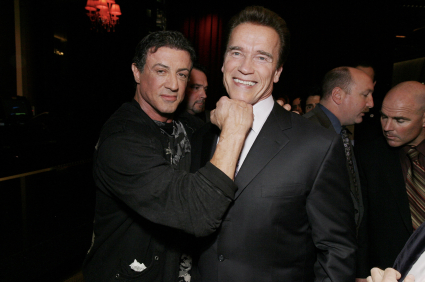I don’t know why, but the term “man crush” makes me snicker.
A man crush as defined in the urban dictionary:
“Respect, admiration and idolization of another man. Non-sexual. Celebrities, athletes and rock stars are often the object of the man crush.”
I thought about this the other day after buying some summertime clothes (shorts, shirts, t-shirts, etc.) When I looked at all of the clothes I had bought, I realized most were RVCA brand. I was exposed to this gear by watching (and being a fan of) BJ Penn, a storied MMA fighter from Hawaii who is sponsored by the company. I think I am the textbook marketing example.
Cool Athlete/Actor/Spokesperson, etc. + Man Crush + Good Product = Company $$$
Why do we have crushes? From what I can gather, it stems from some sort of connection or attraction to the person. There could be a million different reasons for this attraction. For example, it could be a great appreciation for the person’s skill, heart, and talent. Or it could be the connection of being from the same country or hometown (go to Union City or Daly City on Manny Pacquiao fight day and count the number of Filipino flag-bearing shirts). It may be a favorite player on a favorite sports team. Or even the shared experience of having conquered similar obstacles (Lance Armstrong and cancer is a perfect example).
In true guy fashion, no one really likes to admit they have a man crush. But somehow it will manifest itself in the form of wearing a player’s sports jersey, buying endorsed products (like me), attending seminars and presentations, buying books, magazines or any other media associated with your man crush.
Some of the guys I admire (off the top of my head):
Lance Armstrong (for above reason, doping allegations or no doping allegations)
Ichiro Suzuki (There is something just so damn cool about Ichiro. Plus he’s one of the few athletes that can get away with his first name only.)
Bradley Cooper and Liam Neeson (OK, so see how this sounds a little weird now? There’s just something very likable and cool about them. Plus they were half of the A-Team which is a definite plus in my man-book.)
Tom Clancy (Even his name sounds like one of his characters. Read a little about Clancy. He has a great personal story.)
Emmitt Smith (At only 5-9, Emmitt went on to lead the NFL in rushing. I loved watching Emmitt run in those great Cowboy teams of the 90’s.) I even had Emmitt’s football card hanging in my cubicle at work (see overboard list below).
I’m telling guys it’s OK to celebrate your man crush. What I don’t get, though, is that it’s acceptable to gush over our sports figures (if you want to OD on man crush talk, just listen to sports talk radio for an hour). But tell someone you love another man’s writing or acting, and people (usually other guys) just look at you funny (and then crack on you).
Now, with that said, here are three signs you might be going a little overboard with your man crush:
You have a photographic memory of your man’s work: If you can recite every line of every movie of your favorite actor, cite every statistic, or describe a game-time situation down to the last detail of the 1988 National League Championship Series, then you probably have TMMI (too much man information).
You literally follow your man: This is called stalking. If you attend every game, hang around places he would be, or park outside of his home, then you have gone way beyond man crush. Actually, this you might want to keep a secret.
You have pictures of your man crush: If you have posters or pictures on your wall or at your desk of your man crush, then maybe it’s time you took them down – especially if they’re the same posters and pictures you had as a kid, like those old school Sports Illustrated prints – remember those? The exception to this rule is an actual photo of you and your man crush. You know, the one you took at the restaurant with your arm around him while giving the big “thumbs up” sign – after you interrupted dinner with his family. By the way, I count photos on your computer screen saver on this list as well (including the aforementioned dinner photo). These should be taken off of your computer immediately.
Other than that, crush on!
Who are your man crushes?









